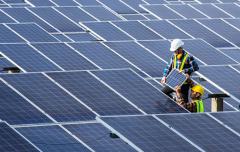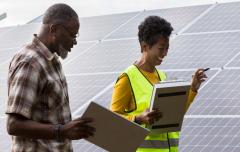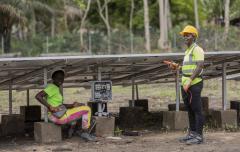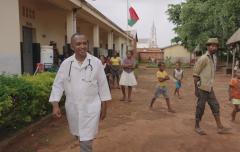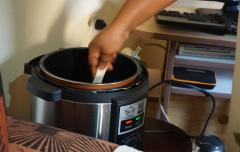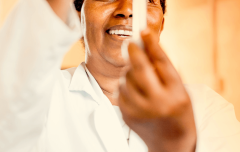SDG 7.1 - Access to energy
Globally, 759 million people – 1 out of 10 – do not have access to electricity to light their homes, refrigerate their food, or keep cool in rising temperatures. Around 2.6 billion people have to rely on dirty biomass fuels such as charcoal, coal and animal waste for cooking. These figures are unacceptable.
In Sub-Saharan Africa and Asia, 20 countries have the largest gaps in electricity and clean cooking access. These regions are also represented in the 80 percent of countries worldwide that do not have access to electricity. Without access to clean, modern energy, it is impossible to achieve Sustainable Development Goals (SDGs) to reduce poverty, broaden education and improve public health. For example, replacing outdated stoves and open fires would save the lives of 800,000 children who die each year from exposure to indoor air pollution. That is why SDG7 calls for action to close these energy gaps by 2030.
Sustainable Energy for All (SEforALL) research shows that investment for better electricity access falls far short of the spending needed to deliver universal access by 2030. Our Energizing Finance report shows that of the USD 36 billion in total finance for electricity access in 2017, only USD 12.6 billion was estimated to support new access for households, representing just one quarter of the estimated annual investment of USD 51 billion required to meet universal access. An annual investment of USD 4.4 billion is required to close access gaps, yet only USD 32 million in finance commitments for clean cooking solutions were tracked—representing less than 1 percent of the estimated finance required for universal clean cooking access by 2030.

